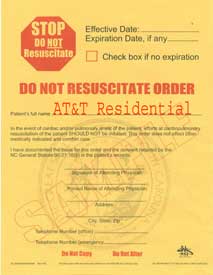
"Dear Doctor, this is a life-saver and I give it to you because you save lives"... Edward
I was reading this short note on a sticker of a life-saver mint that a sick patient gave to me and other members of the team. Edward had a terminal disease in his lungs from smoking and came to the hospital having an infection, then he suddenly became very short of breath and we watched him take his last breaths, gasp for air with his face turning blue and his hands and legs shaking until he gradually stopped breathing completely and was gone. That was the first time I see someone actively dying in front of me without being able to do anything. We had all the equipment and medication which could have brought him back to breathing, at least temporarily, but we didn't interfere because Edward had asked us a few hours before that, when he was more alert and healthy, that in the case his heart and lungs stopped working to let nature take its course and not intervene to bring him back to life.
A lot of patients take these decisions, and sometimes doctors encourage them especially in terminally-ill patients who will only suffer longer if they're placed on a breathing machine. Other patients are totally healthy but are too old and they feel they had a good life and if their heart stopped they don't want anything done for it. Whatever the case is, people who make these critical decisions about their living wishes make these decisions when they are alert and conscious, and when most of them have not known what death or dying is like.
I'm wondering if Edward, while fighting death during the last seconds of his life, would have changed his mind or whether or not he have regretted his decisions and that is something we can never know. However it also wouldn't make sense to keep him on a breathing machine all his life if he is unable to wake up and breathe on his own: he would be basically turned into a "vegetable".
What confuses me, is that some people who are very healthy and have never experienced what death is like make a choice about their end of life and ethically and legally we have to follow their choices, but on the other hand whenever a dying or suffering person asks to end up his/her life that would be considered a murder. We are allowed to let people die although this can be stopped, but we are not allowed to help them die. Those technicalities can either make you a compassionate doctor or a serial killer.



4 comments:
HHR, thanks for addressing this topic. My parents dis-inherited me for not being willing to pull the plug for them until these DNR orders came out, taking the decision out of my hands, thankfully. He eventually died from his DNR order, and I also wonder if he regretted it in the end.
I know all the Christian implications, it would be interesting to hear from a Muslim perspective.
Kinzi i'm sorry to hear that. DNR/DNI orders are always a major concern for doctors. Some very sick cancer patients insist on not being DNR/DNI and they end up living on a ventilator for months or years with an unbelievable number of preocedures done to keep them alive and they end up in a very bad shape and die very slowly, and other healthy people might get a temporary acute illness like a pneumonia or a heart attack and they can be revived and return to have a normal life however they have chosen to be DNR therefore they are left to die and no doctor or even family member is allowed to do that. It's a big ethical dilemma and doctors sometimes end up NOT doing what is in the best interest for the patient just because it was his choice. What makes sleep at night is that that person made up his/her decision when they were totally alert and aware of their decision and its implications.
I really liked the way in which you presented the dilemma and your first hand experience Hareega , got me thinking.
Things are always so much easier when we have to decide on a general problem , come up with acceptable solutions and present valid arguments for our choices.However , the moment its a family member or a loved one , things seem to change and the solution which was applicable in general once upon a time , suddenly has exceptions and depends on many factors... *sigh*
It takes a compassionate doctor like you to offer them good advice , almost counselling. Lamoos
Thank you lamoos for your words. The problem is that sometimes families and doctors think that doing everything to save one's life is always in the favor of the patient although that might be exactly against her/his wishes. Sometimes, whatever decision is being made families tend to think that it could be wrong and that is very stressful to everyone.
Post a Comment